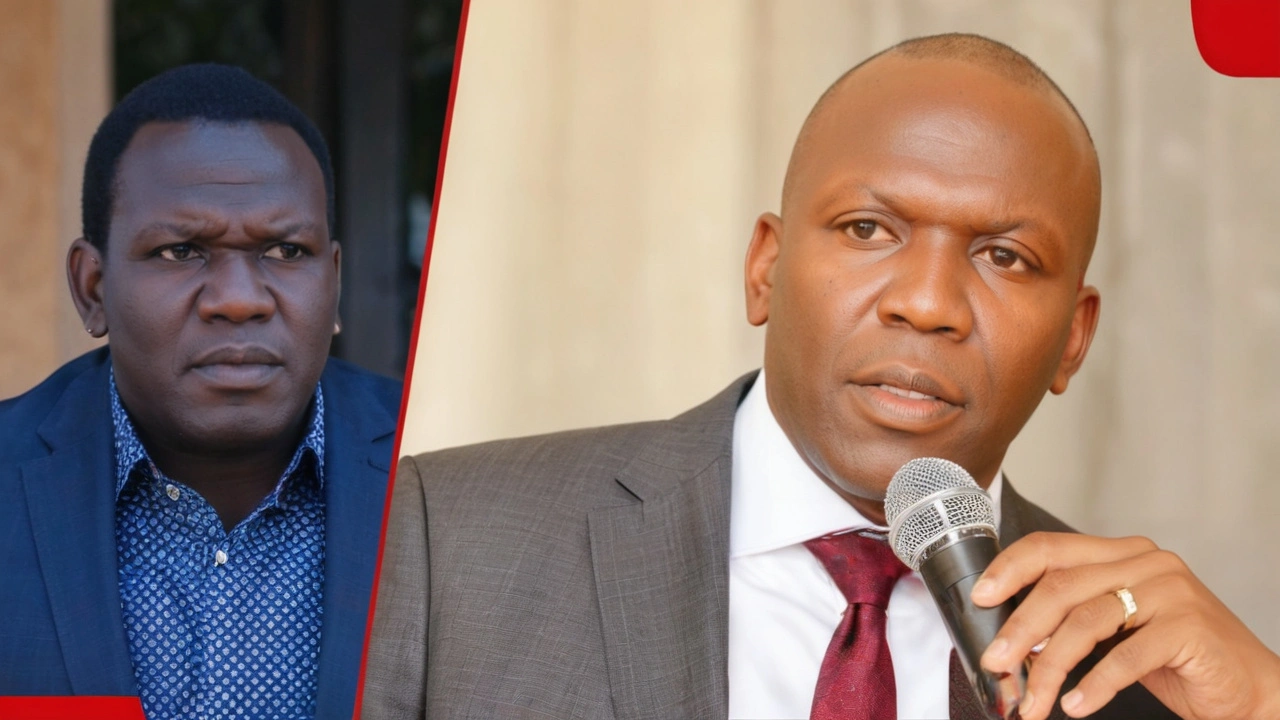Wycliffe Oparanya Urges EACC to Retract Claims Declaring Him Unfit for Public Office Amid Corruption Allegations
 Aug, 3 2024
Aug, 3 2024
Wycliffe Oparanya Urges EACC to Retract Claims Declaring Him Unfit for Public Office Amid Corruption Allegations
Former Kakamega governor Wycliffe Oparanya has found himself at the center of a significant dispute with Kenya's Ethics and Anti-Corruption Commission (EACC). The conflict arose when the EACC issued a statement asserting that Oparanya was unfit to hold public office due to ongoing corruption cases. Oparanya, recently nominated as the Cabinet Secretary for the Co-operatives Ministry, has since demanded that this statement be retracted, calling it damaging and unfounded.
The controversy started when the EACC, in a letter, informed Oparanya of his ineligibility for the ministerial position based on criminal charges pressing against him. This notification has not only cast a shadow over his political career but has also stirred considerable public interest and concern regarding the integrity of the Co-operatives Ministry.
Legal Action Threatened
Oparanya, through his lawyer Danstan Omari, has formally requested the EACC to retract their statement. Omari argues that the commission's actions amount to harassment and threats against his client. This legal maneuver not only aims to clear Oparanya’s name but also seeks to challenge what they deem an overreach by the EACC in determining eligibility for public office independently of judicial outcomes.
The lawyer emphasized that the charges against Oparanya have not yet been proven in a court of law, which should preclude the EACC from making such determinations. In the absence of a retraction, Oparanya has expressed his intention to pursue legal action against the commission, potentially escalating the dispute to the courts. Such a move would likely bring more scrutiny and debate over the roles and powers of oversight bodies like the EACC in Kenya's political framework.
Origin of the Dispute
The EACC's decision to declare Oparanya unfit for public office was largely influenced by a letter from Nairobi-based activist Peter Agoro. Agoro's letter demanded a detailed account of the progress of corruption cases involving the former governor. According to Agoro, this information was crucial for maintaining the integrity and accountability of the office that Oparanya was nominated to occupy.
Agoro’s call for transparency underscores a growing public demand for greater accountability from individuals occupying or seeking to occupy public offices. The activist's intervention has acted as a trigger point for the EACC’s decision, which they argue is in line with their mandate to combat corruption and ensure ethical governance.
Impact on Public Perception
The ramifications of this dispute extend beyond the immediate parties involved. For the public, it raises serious questions about the vetting processes for public officials and the influence of corruption allegations on these processes. It also highlights the delicate balance between safeguarding the integrity of public offices and ensuring that individuals are not unfairly judged without due process.
If Oparanya proceeds with legal action and succeeds, it could set a precedent for how similar cases are handled in the future. On the other hand, if the EACC's position is upheld, it would reinforce their role as a pivotal arbiter in maintaining ethical standards in public service.
Political and Legal Repercussions
Politically, Oparanya's predicament mirrors the broader challenges faced by many African democracies in their fight against corruption. The case also taps into the deeper tensions between elected officials and independent oversight bodies. How this issue is resolved could influence future interactions between politicians and bodies like the EACC.
Legally, the dispute could fuel debates on the extent of powers that oversight bodies should wield and the parameters within which they should operate. The judicial proceedings, should they commence, will be closely watched not only for their outcome but for the legal precedents they might set regarding the separation of powers and the scope of anti-corruption mandates.
Moving Forward
Wycliffe Oparanya’s demand for the EACC to retract their statement is more than a personal plea; it is a bid to protect his political career and reputation. As this saga unfolds, it will be crucial to monitor the responses from both the EACC and the judiciary to understand the evolving landscape of governance and accountability in Kenya.
For now, Oparanya stands firm in his challenge, advocating for what he believes to be fair treatment and due process. His readiness to take legal action denotes a significant step in his fight against what he perceives as unjust allegations and actions by the EACC.
Regardless of the eventual outcome, this case illustrates the complex interplay between law, politics, and governance. As Kenyans and observers alike await further developments, the situation serves as a potent reminder of the ongoing struggle against corruption and the multifaceted nature of public accountability.

Ruben Figueroa
August 4, 2024 AT 11:22Gabriel Clark
August 6, 2024 AT 03:59Steve Cox
August 6, 2024 AT 06:35Aaron Leclaire
August 6, 2024 AT 15:15Mitch Roberts
August 7, 2024 AT 08:11